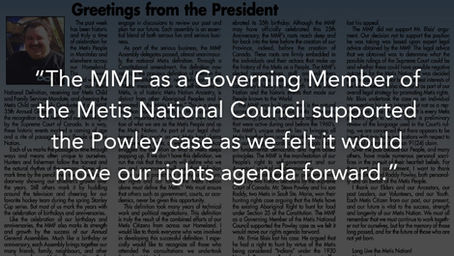top of page
Search


Madeline Laframboise: Métis Entrepreneur
Michilimackinac, or Mackinac Island, was “an eighteenth century nexus for the Great Lakes fur trade” where many Métis families like the Langlades, Cadottes, and Nolins emerged as leading families within the emerging Métis political consciousness in the Upper Great Lakes. Within that often male-dominated business world, Métis matriarch Madeline Laframboise was renowned for her entrepreneurial prowess and success. Laframboise was “a tall and commanding figure, and most dignifie


Rosette Boucher’s Métis Memories
Rosette Boucher (nee Larammee) was born on a cold December 12, 1815 to Jaques Adam Laramee, North West Company employee and War of 1812 veteran, and Rosette Cloutier, a “half-breed woman” from Mackinaw Island in the Upper Great Lakes. Rosette’s upbringing was grounded in her Métis community’s traditional way of life, including participating in the annual spring sugar camps common among Métis families throughout the Upper Great Lakes. In 1828, however, at just thirteen years


“connection to the… history of the Métis Nation”
The Métis Nation, its governments, and leaders have a long legacy of recognizing and uplifting the history and connection between the Upper Great Lakes Métis and broader Métis Nation, including the important historic Métis community at Sault Ste. Marie. In its intervention to the Supreme Court of Canada in R. v. Powley , the Métis National Council advanced the unanimous recognition that Métis Nation governments from Ontario-westward held for the Sault Ste. Marie Métis commun


Métis Nation Affirms Upper Great Lakes Métis
During R. v. Powley’s successful ten-year legal battle, Métis Nation governments rallied together behind the Powley family and their Sault Ste. Marie Métis Community. The Métis Nation, for example, intervened at the Supreme Court of Canada through the Métis National Council to affirm the unanimous position of Métis Governments across the Homeland that the Sault Ste. Marie Métis Community and Powley family are, “part of the larger Métis Nation”. While acknowledging that the


R. v. Powley: A Strategic Métis Nation Decision
Understanding its potential historical significance and broader implications, the entire Métis Nation made the strategic decision to...


R. v. Powley “only the beginning” for Métis Rights
The Supreme Court of Canada’s unanimous decision in R. v. Powley on September 19, 2003 affirmed that members of the historic Sault Ste. Marie Métis Community have a constitutionally protected right to harvest and laid a foundation for further Métis rights recognition across the Métis Homeland from the Upper Great Lakes to the Rocky Mountains. Days after the Supreme Court’s Powley ruling, after having “took time to understand the court ruling and its implications”, Manitoba
bottom of page
